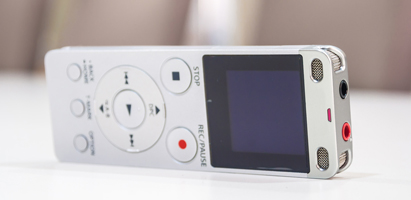Was Cohen's secret Trump tape an ethics violation? ABA opinion authors split on client taping

Benedix/Shutterstock.com.
New York law didn't prevent lawyer Michael Cohen from recording a September 2016 discussion with his client, then-presidential candidate Donald Trump. But did Cohen violate ethics requirements when he recorded the discussion about a hush-money payment?
The answer to that is less clear-cut, the Washington Post reports.
The recording was legal because Cohen and Trump were in New York, a one-party consent state. That means only one person needs to be aware of the recording—and that person can be the one making the tape.
But ethics opinions are divided on whether secretly recording a client is an ethics violation, including opinions by various bar associations within New York state, according to the Post. Even the ABA committee that issues ethics opinions has reversed course on the broader issue of secret recordings by lawyers, and has split on the issue of secret recordings when the person recorded is a client.
The ABA Standing Committee on Ethics and Professional Responsibility initially concluded in a 1974 ethics opinion that the ethical ban on dishonesty, fraud, deceit or misrepresentation generally prevented lawyers from recording any conversation without the prior knowledge of all parties to the conversation.
However, the standing committee withdrew that opinion in 2001 when it issued Formal Opinion 01-422. The new opinion said lawyers who record conversations without the knowledge of other parties don’t necessarily violate the ABA Model Rules of Professional Conduct.
But lawyers may not record conversations in jurisdictions that make it illegal, the opinion says. They can’t falsely deny that a conversation is being recorded. And there are ethical issues that arise when a lawyer records a client, who is owed a duty of loyalty, according to the opinion. The committee pointed out those issues, but split on whether recording a client is permissible.
The opinion said the committee was unanimous, however, “in concluding that it is almost always advisable for a lawyer to inform a client that a conversation is being or may be recorded, before recording such a conversation.”
“Clients must assume, absent agreement to the contrary, that a lawyer will memorialize the client’s communication in some fashion,” the opinion said. “But a tape recording that captures the client’s exact words, no matter how ill-considered, slanderous or profane, differs from a lawyer’s notes or dictated memorandum of the conversation. If the recording were to fall into unfriendly hands, whether by inadvertent disclosure or by operation of law, the damage or embarrassment to the client would likely be far greater than if the same thing were to happen to a lawyer’s notes or memorandum of a client conversation. …
“The relationship of trust and confidence that clients need to have with their lawyers, and that is contemplated by the Model Rules, likely would be undermined by a client’s discovery that, without his knowledge, confidential communications with his lawyer have been recorded by the lawyer.”
The Post spoke with law professors for their take on the ethics issue. Rebecca Roiphe, a professor at New York Law School, told the newspaper that recording clients “is definitely unusual and almost always a really bad idea.” But depending on the circumstances “it’s not necessarily a clear ethical violation,” she added.



